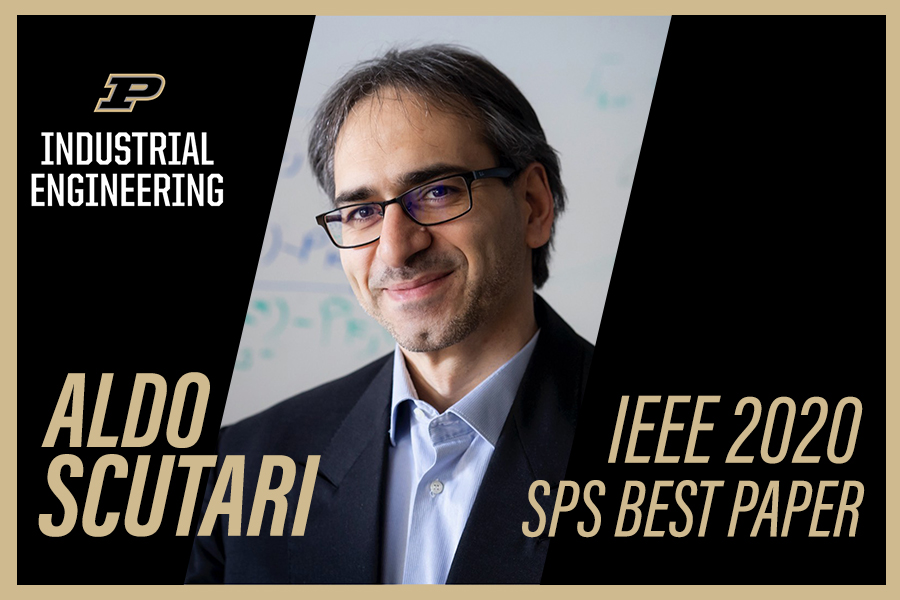Scutari & Collaborators Awarded IEEE SPS 2020 Best Paper
The Best Paper Award is formerly known as the Senior Award to honor the author or authors of a paper of "exceptional merit dealing with a subject related to the Society’s technical scope, and appearing in one of the Society’s solely owned transactions, the Journal of Selected Topics in Signal Processing, the Transactions on Computational Imaging, or the Transactions on Signal and Information Processing over Networks, irrespective of the author’s age."
Papers honored with the award are chosen for their quality, originality, subject matter, and timeliness. Eligibility is based on a six-year window: for example, for the 2020 Award, the paper must have appeared in one of the Society’s Transactions between January 1, 2014 and December 31, 2019.
Congratulations to Professor Scutari and his team!
Abstract
Migrating computational intensive tasks from mobile devices to more resourceful cloud servers is a promising technique to increase the computational capacity of mobile devices while saving their battery energy. In this paper, we consider an MIMO multicell system where multiple mobile users (MUs) ask for computation offloading to a common cloud server. We formulate the offloading problem as the joint optimization of the radio resources—the transmit precoding matrices of the MUs—and the computational resources—the CPU cycles per second assigned by the cloud to each MU—in order to minimize the overall users’ energy consumption, while meeting latency constraints. The resulting optimization problem is nonconvex (in the objective function and constraints). Nevertheless, in the single-user case, we are able to compute the global optimal solution in closed form. In the more challenging multiuser scenario, we propose an iterative algorithm, based on a novel successive convex approximation technique, converging to a local optimal solution of the original nonconvex problem. We then show that the proposed algorithmic framework naturally leads to a distributed and parallel implementation across the radio access points, requiring only a limited coordination/ signaling with the cloud. Numerical results show that the proposed schemes outperform disjoint optimization algorithms.
DOI: 10.1109/TSIPN.2015.2448520

